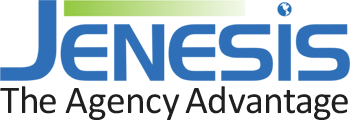
New Year’s resolutions aren’t just for individuals; they can also be great for businesses. Even if you don’t make it an official resolution, starting the new year off with the right goals can be great for your insurance agency. As you set those goals, keep the following tips in mind.
Understand the Types of Goals
Before you start thinking about specific goals, consider what types of goals you want. They will likely fall into one of the following categories.
General Business Goals
These are the most common for insurance agencies. Examples include serving a set number of clients, writing a set number of contracts, or having a certain percentage of revenue growth. Goals can even be related to your team’s certifications or the number of team members you have.
Operations Goals
Many insurance agencies overlook operations goals, but they are important. These goals tend to focus on process consistency, customer satisfaction, administrative efficiency, team growth, and other similar things. For example, maybe you want to develop a client referral program or an employee incentive program. Or maybe you want to reach a specific percentage for customer satisfaction.
Marketing Goals
You may not have well-defined marketing goals yet, and some of this problem may come from the past reliance on word-of-mouth marketing. But you need to focus on marketing; it drives sales. Example goals include receiving a certain number of new social media followers, increasing web traffic by a certain number of visitors, or writing a certain number of blog posts.
Sales Goals
As expected, sales goals focus on what you want to sell. These goals can be quarterly, monthly, weekly, or even annual. Be as specific as possible. Some examples could be signing a certain number of new auto insurance customers or cross-selling a certain number of policies to your current clients.
Make Sure the Goals Are Meaningful
When choosing which goals you want to prioritize or even create, focus on those that are meaningful. You will find yourself and your team much more motivated to work toward the goals if they mean something to you and the company.
Part of this involves looking ahead in both the short term and the long term. It also involves ensuring that your goals aren’t overly easy to achieve. Your goals should pose a challenge and require effort to achieve.
Make Your Goals as Specific as Possible
Just like any other goal that you make in your life, you want to ensure that your insurance agency’s goals are as specific as possible. Don’t say “cross-sell more.” Say “cross-sell at least 25 more policies per quarter.”
If a goal is more specific, it is much easier to measure your success. That is crucial, as the goal is there for a reason. There’s also the fact that being able to measure your success also lets you evaluate your progress toward a goal. You can use that for motivation to keep going or to see if you need to make changes to how you work toward the goal.
Think About How You Will Achieve the Goals
Just setting your goals isn’t enough to start the new year off right. You also need to think about how you will go about achieving them.
The best way to do this is to break each goal into smaller goals or steps on the way. Ideally, you want to take an overall look at your goals at least once a quarter. As you create your goals, break them into specific goals for each of those quarters. From there, you can further break them down into smaller goals or just steps to achieve them at the monthly level and even the weekly level.
Breaking the goals down into shorter periods is excellent for motivation and getting you started. If you know what you have to do today or this week to get and stay on track, you won’t have the issue of not knowing where to start, which could potentially stall any progress. Even seemingly small steps can make a difference.
Adjust Your Habits as Necessary to Achieve the Goals
After you have made a list of your goals, think about your habits and how they affect how likely you are to achieve those goals. You will likely find yourself in need of replacing some bad habits.
For example, instead of checking your email right away in the morning, start with other activities that will have the largest impact. Another example is worrying about shutting your office door. Maybe you like to keep it open so you seem approachable, but this increases your distractions. Therefore, close the door.
Tell Your Team About Your Goals
Everyone involved in your insurance agency should be aware of your goals. After all, they can’t work toward them if they don’t know they exist.
Once you’ve established your goals and gotten everyone else in on them, you’ll be ready to take your agency to the next level in the coming year.
